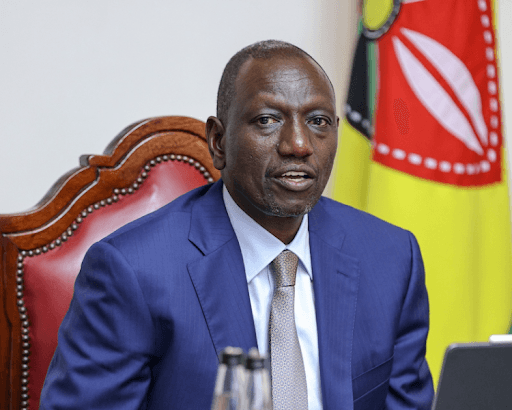The civil society wants the notice by President Uhuru Kenyatta that paved way for the creation of National Syndemic Diseases Control Council degazetted.
The President in an Executive Order published on August 5, restructured the National Aids Control Council and assigned it more roles beyond interventions to tackle the HIV epidemic.
NACC, in the changes will be called National Syndemic Diseases Control Council and will deal with sexually transmitted infections, malaria, tuberculosis, leprosy and lung disease beyond HIV/Aids response.
But the civil society has faulted the move, noting that the National Aids Control Council does not have the capacity to conduct the expanded mandate, based on previous mandates entrusted on them.
They have further cited lack of consultations before the government arrived at the decision.
The director, Disease Eradication Civil Society Assemblies Emily Mukomunene said the new body duplicates the mandate of the critical role of the Ministry of Health in policy making, disease surveillance, research, management of health information system and human resources for health, among others.
This, she said creates a parallel processes.
Others opposing the move include the NGOs Council and the Ambassador for Youth Adolescent Health Reproductive Programme.
“In the absence of our involvement in the drawing and development of the executive order, we are denied our critical role as representatives of the end users of health services who are major stakeholders and dependents on the health policies enacted by the government,” Mukomunene said.
The executive order states that the council shall take over the rights, duties, obligations, assets and liabilities of the National Aids Control Council.
“Any person who held office as a member of the board, or as an officer or member of staff of the NACC existing immediately before the commencement of this order, shall continue to hold office as if that person had been appointed under this order,” the President said.
“The executive order goes against the spirit of the health act of 2017, the HIV prevention and control act 2006, public health act cap 242, malaria prevention act cap 246, the public finance management act 2012 and the spirit of Universal Health Care,” they add.
They now want the government to halt the implementation of the executive order as a matter of urgency until adequate multi-sectoral stakeholder engagement including: public education and participation on the said order has been conducted.
They further want the government in collaboration with CSOs to carry out civic education in the 47 counties, using basic national languages for ease of understanding and quality contribution by the public.
“That civic education on the order be conducted in mainstream media and other media channels to reach out to all citizens to understand the implication this move has on their access to health care,” civil society noted.
The new agency will be tasked to develop policies for prevention and control of syndemic diseases and also mobilise resources for their control, as well as provide grants to implementing agencies.
The council will also be charged with ensuring the accountability for the implementation of syndemic diseases programmes in the country.
It will also be the agency charged with collaboration with local and international agencies, which work in syndemic diseases control.
The agency will also be tasked with research, surveillance, monitoring and evaluation of syndemic diseases programmes.
The body will bring together government ministries, counties and institutions, Non-Governmental Organisations, community-based organisations, research bodies, the private sector and universities to participate in control and prevention of the targeted diseases.
WATCH: The latest videos from the Star










